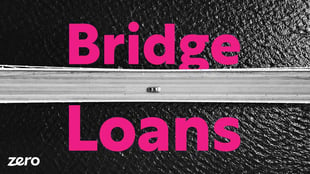How to Choose the Best Mortgage Lender

One of the most important steps to buying a home is deciding on a mortgage loan and deciding on a loan involves settling on a good mortgage lender. Because a mortgage loan will probably be part of your finances for years to come, it’s crucial to find a quality lender who not only offers you a good rate but helps you through the process as well
Read our beginners' guide to mortgages here.
How to Find the Best Mortgage Lender
There’s more to a lender than the loan amount and interest rate that they’re willing to offer you. Here are some other things to consider:
Find a Reliable Mortgage Lender With Good Reviews
You’ll be working with your lender a lot throughout the home-buying process. Check out a lender’s reviews online to see what their other customers have to say. Do they answer questions promptly and pick up the phone when you need them? You’ll want to work with someone who is on your side and is willing to discuss your concerns and breakdown the fine print throughout the process.
Ask Your Agent About Finding the Best Mortgage Lender
Your real estate agent has probably seen the best and worst of what your area has to offer. Ask them if they have any lenders that they recommend or know of any to avoid.
Consider the Location of the Mortgage Lender
You don’t have to choose a lender who operates right out of the town you’re considering moving to, but location can have a big influence on your communication. It can be hard to reach a lender in a different time zone, and end-of-day deadlines that occur throughout the closing process may prove difficult if one party’s 5 PM is another’s mid-afternoon
We wrote a whole blog on how to speed up the closing process, read it here.
4 Steps to Choosing the Best Mortgage Lender
When choosing a mortgage lender, it’s important that a lot of preparation, research, and consideration is put in place. Be prepared for the preapproval process, have a good idea of what to anticipate, and prepare your finances. Here are some steps to take when starting on your search for the best mortgage lender:
Step 1: Prepare Your Finances
Before you start looking around for a lender, it’s ideal to make sure you have your finances in order. This can include figuring out how much house you can afford to improve your credit score, if necessary.
Your credit score is one of the best ways to show lenders that you will be able to make monthly mortgage payments on time. A solid score shows that you have paid off your past debts and that the amount of credit that you use is consistent and relatively low.
Additionally, lenders will likely look at big aspects of your finances to calculate what you qualify for, like your salary, debt, and how much you have in savings. However, they may not consider the smaller costs that add up each month or year, like paying for utilities or transportation. With that being said, it can be worth doing your future self a favor by adding up your monthly expenses and calculating how much you can afford to pay monthly towards your mortgage. Once you’ve done that, you’ll likely feel more confident about finding the right mortgage lender for you.
Step 2. Research Lender Options
As a borrower, there are a lot of lender options for you to choose from. Lenders can range from your local banks to online mortgage lenders. If you’ve done any research to find the type of mortgage that you might use, it's best to take notes on the many options that are available.
To help you wade through the local lenders, online mortgage companies, and banks that offer mortgage opportunities, let’s take a look at the different types of lenders.
Direct Lenders
Direct lenders are banks, independent lenders, and online companies that provide mortgages to customers. They cover the entire process, from pre-approval to closing.
Direct lenders are great to work with because they oversee the entire process, and you can ask questions about any step of the application or about the terms and fees. However, it’s important to take a close look at what those fees entail and to get quotes from several different lenders before moving forward with one. Each direct lender approaches fees and costs differently, and you might have to read the fine print to compare how those costs break down over time.
Mortgage Brokers
Mortgage brokers act as a kind of third party between borrowers and lenders and work to find loan options that best match a borrower’s needs. Mortgage brokers charge a fee of the overall loan (typically between 1 and 2 percent) to either the borrower or the lender.
Because mortgage brokers don’t set the loan terms themselves, they can be great independent experts who can help lead you through the lending process without being incentivized to sell you on one specific loan option.
Correspondent Lenders
Correspondent lenders will process your application and provide initial funding of your loan but will then sell the loan to other companies to make a small profit. The profit made from this sale allows the correspondent lender to offer borrowers a larger range of loan types and interest rates.
The sale of your mortgage to a secondary market is very common, and the mortgages often end up in the hands of Fannie Mae and Freddie Mac, two government-subsidized companies that help maintain and balance out the ebb and flow of the national real estate market.
Wholesale Lenders
Wholesale lenders are institutions that don’t interact directly with borrowers. Instead, they work with mortgage brokers (which we covered above) or with banks and entities that process the application and set up the deal. Like correspondent lenders, wholesale lenders also often sell the loan to investors or other companies soon after the borrower signs.
Warehouse Lenders
Warehouse lenders act like the backbone of funding for mortgages and allow lending companies to take on more loans and offer different loan types. Warehouse lenders actually lend money to the mortgage company that works with borrowers and allows them to pay down your mortgage loan.
When your mortgage company sells the loan to the secondary market, they are using some of that profit to help pay back the warehouse lender.
Portfolio Lenders
Portfolio lenders fund a borrower’s loans from their own capital. This allows a bigger degree of flexibility for both the lender and the borrower, since the loan can be bigger and the lender can set their own regulations and don’t have to conform to sell to the secondary market.
If you’re looking for a jumbo loan or a loan that doesn’t fit within conventional limits, a portfolio lender is one of your best potential options for funding a real estate purchase.
Step 3. Compare Rates and Terms From Multiple Lenders
We’ve said it before and we’ll say it again! Getting multiple options from lenders is crucial to getting a good loan. Every lender has their own fees and terms, and some will work better for your personal financial situation than others.
Even if you feel like you’ve gotten a great rate with the first lender, do yourself a favor and get a few more options under your belt before moving forward
Do you know what the differences are between interest rates and APR? Find out now!
Step 4. Get Preapproved for a Mortgage
Getting preapprovals from several different lenders is probably the best way to see what you qualify for and what different lenders offer. For a preapproval, you will probably be asked to submit some official documentation such as your social security number, history of residential addresses, income, credit score, and outstanding debt. Lenders will check your credit, but it won’t put a dent in your score.
Because lenders will do more in-depth research into your financial history once you submit an official application, you’ll want to keep your finances steady after getting preapprovals. Opening a new line of credit, for instance, could change the interest rates and loan amount that you qualify for, so it’s a good idea to avoid making any major changes before officially closing on a home and signing onto the loan
Our Mortgage Learning Center features blogs on a wide range of mortgage and refinancing topics.
Finding the Best Mortgage Lender for You
Each mortgage lender is different, and that’s a good thing! It means that you can shop around and find one that works best for your unique financial situation. Doing some research on your own and looking at reviews of lenders will go a long way in helping you narrow down your options, and it will set you up to move forward on a loan that you can feel good about.
Find a Mortgage Lender Today!
This page last updated: October 18, 2022
Read more on this topic below.

When you buy a house and start making mortgage payments, your payment consists of four different components, known...

If you have gone through the pre-approval process but need to take a deeper dive into how much house to buy,...

The vast majority of mortgage loans require you to put down a certain percentage of the selling price upfront....

Whether you’re a first-time buyer or you’ve purchased a home before, you’ve likely heard of a homeowner’s association....

There’s a lot of expenses to keep in mind when you’re thinking about buying a home. Between the price of the home, property taxes, your mortgage...

Conventional loans are mortgages offered by private lenders, banks, and institutions that are not backed by the government. Unlike FHA, USDA,...

Some homebuyers refuse to purchase a property if it is part of a property owner association. On the...

Research indicates that 58% of homeowners in HOA communities and single-family homes pay an average monthly fee...

Private mortgage insurance is something millions of homeowners pay for each year. However, this type of insurance does not protect

When you first set out to buy a home, it can feel like you’re taking an exam you forgot to study for. You have to make quick...

When looking to refinance or buy a house, the pre-qualified vs pre-approved mortgage debate can be...

It’s likely that your mortgage loan will be the largest loan you have during your lifetime. Mortgages are not a one size...

For many people, owning a home is part of the American dream. To make this dream a reality, most people will take out a...

Whenever you’re looking to buy a house, you’ll quickly realize there are a lot of fees associated with obtaining a mortgage....

A bridge loan is a short-term loan a borrower may use while a more long-term financing contract is finalized. Bridge...

A loan estimate is crucial to obtain when looking for a loan. This estimate not only gives you the details of a mortgage but also compares offers...

There are many moving parts and various people you’ll deal with throughout the homebuying process....

If you’re looking to buy a house, and do not have a mountain of cash saved up, you’ll need to consider getting a mortgage to help you finance this...

If you find a property that you’re highly interested in buying but are concerned that the seller might choose...

Buying a home? You’ll likely need to get it appraised before you receive the clear to close. If you’re wondering...

If you’re an active service member, a veteran, or the surviving spouse of a veteran, and you want to ...

There’s no doubt, COVID-19 changed the world in countless ways and took us all by surprise. From an...

Whenever you are borrowing money, whether it’s for a new mortgage, a refinance, credit card, or car loan, you’ll hear...

If you’re new to buying a home, you probably have quickly realized the overwhelming amount of options there...

If you’ve already gone through the lengthy process of writing offers, securing financing, and arranging inspections for your...

First time home buyers are often surprised when they learn about all of the expenses that are associated with ...

Purchasing real estate is not as simple as finding the right home, submitting an offer, and signing the closing paperwork; many...
